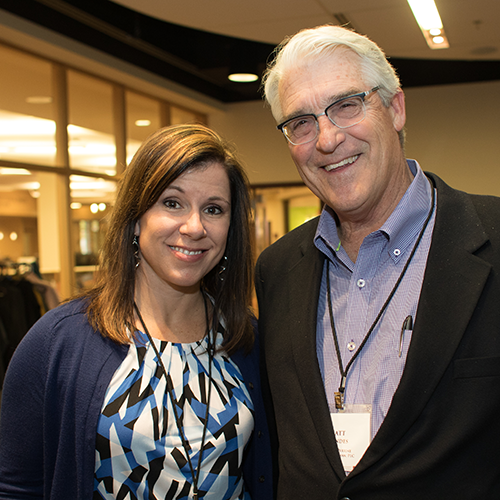Unbundling: A Versatile Solution to Increase Access to Legal Services
 At the end of last year, I posed the question: “was 2017 a year of change?” To which I answered, “yes . . . but not enough.” I challenged the legal industry in 2018 to make goals together and support one another so we can become more client-focused, affordable and truly show the value our legal system provides. Several have accepted the challenge, including an entity that’s been a leader in advancing the legal system since its inception: the Institute for the Advancement of the American Legal System (IAALS). One example of their collaborative leadership was co-hosting the “Better Access through Unbundling” conference with the ABA late last year, at which I had the pleasure of being a panelist.
At the end of last year, I posed the question: “was 2017 a year of change?” To which I answered, “yes . . . but not enough.” I challenged the legal industry in 2018 to make goals together and support one another so we can become more client-focused, affordable and truly show the value our legal system provides. Several have accepted the challenge, including an entity that’s been a leader in advancing the legal system since its inception: the Institute for the Advancement of the American Legal System (IAALS). One example of their collaborative leadership was co-hosting the “Better Access through Unbundling” conference with the ABA late last year, at which I had the pleasure of being a panelist.
Why unbundling? Because it truly is a solution to close the justice gap for those Americans, including those in the middle class who are finding themselves priced out of legal services. Unbundling, sometimes also referred to as limited scope representation, is a tool for all people, regardless of income, who are interested in having an attorney help them in at least some part of their legal matter. It also helps Americans experience firsthand the value of a lawyer’s services. Unbundled legal services help the courts move otherwise completely pro se litigants through the system more efficiently, and it’s a solution that is already allowed in all states. And in this time of change, as the legal industry works to become more client-focused, efficient, affordable, and relatable to consumers’ needs—unbundling of legal services answers the call. It is one aspect of the promise upon which our legal system is founded—justice for all—as it can help more Americans with their legal needs than the traditional model.
So what was the call to action I took away from this conference if I already believe unbundling is a solution? It is to join with others to promote and encourage expansion of its use—for although it is allowed, it is still not a common practice. Too many lawyers, consumers, and judges do not know what the terms unbundling or limited scope representation mean; or if they do, they view them with disdain. I am working with others on the Iowa Access to Justice Commission to help unbundled legal services become a commonplace practice—encouraged by courts, practiced by lawyers, and understood and utilized by consumers.
There are many incredible solutions that are being contemplated, designed, and implemented to help bridge the justice gap, but many entail rule changes, technology builds, dollars invested, and time. Unbundling surpasses all these constraints thanks to those who already did the work. But as with any change in our industry, even if it is already known to be a viable solution for many issues we face, we, as lawyers, must embrace and try it. My call to action for all of you is: How can you help unbundling of legal services be more commonplace in your state?
I’d love to hear your thoughts in the comments below.
Editor's Note: Photo of Nicolle Schippers and Matthew J. Brandes attending the October 2017 Better Access through Unbundling Conference.


